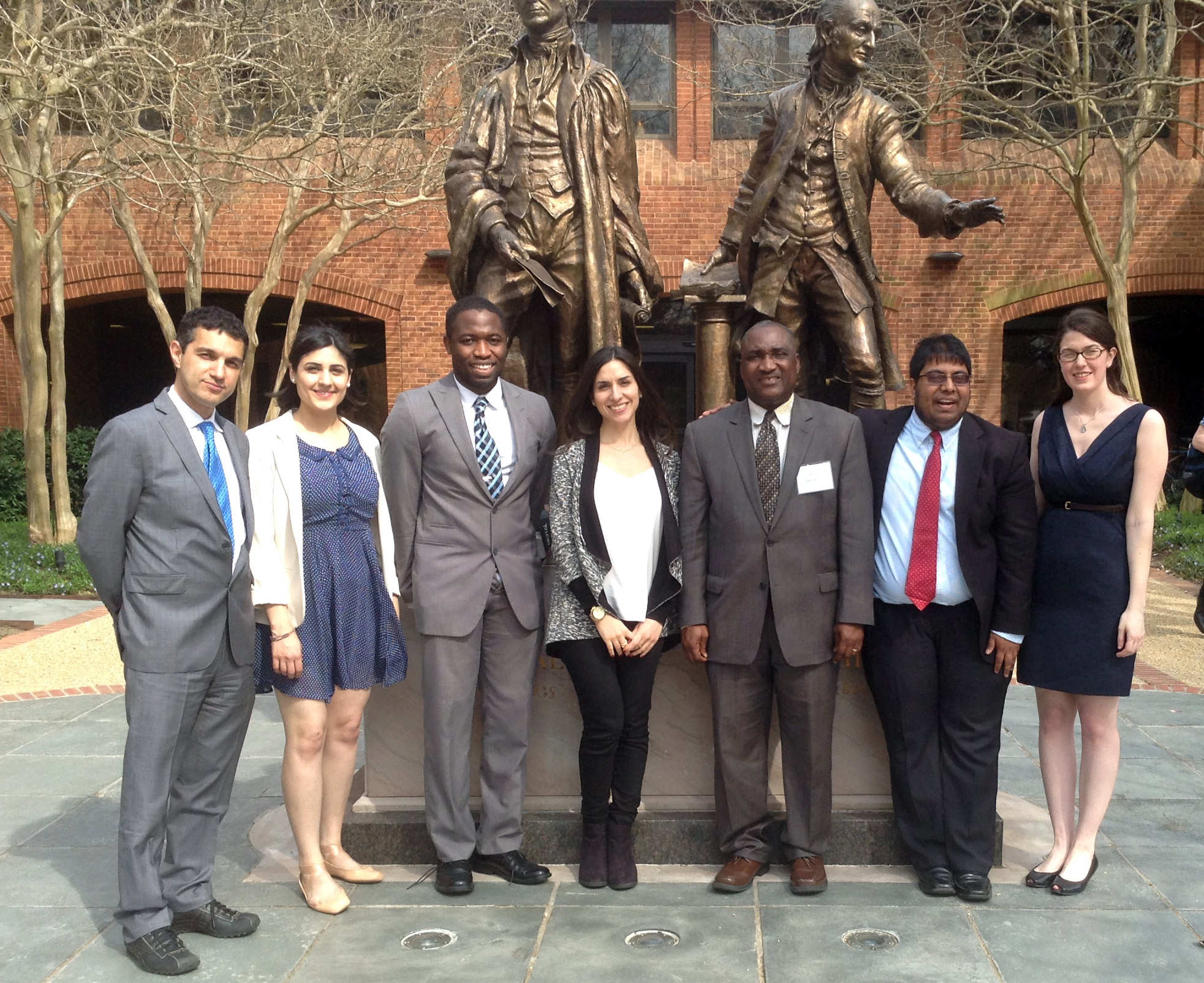|

By Rosemary E. Hambright, J.D. ’16 and Atif A. Choudhury, J.D. ‘15
On Friday April 3, the newly-established Comparative Legal Studies Scholars (CLSS) successfully hosted its first full-day symposium. “Healing the Rift: Infectious Diseases in Post-Conflict Zones” focused not only on the Ebola crisis’ impact on Liberia, but also a range of other post-conflict issues. The four keynote speakers were experts in the fields of public health, human rights, governance, and rule of law development.
“Countries don’t work unless the law works.”
Jeffrey Apperson, vice-president of NCSC International, discussed a range of issues affecting effective rule of law development, including unchecked prosecutorial power and critical shortcomings in fostering judicial accountability and transparency. Apperson suggested a lack of judicial security leads to continued criminal impunity and that the failure of the criminal justice system in many countries has generated “worldwide cultures of youth disaffection”—including the rise of groups such as ISIS, Boko Haram, and al-Shabab. Apperson also discussed some of the basic challenges hindering judicial capacity and reform including massive caseloads, ineffective witness protection programs, and a lack of public will. Apperson concluded by stating the need to first develop the framework around which the institutional capacity should later be built, and cautioned about the need to look into outcomes and sustainability before investing in projects.
“Social entrepreneurs are looking for new solutions to old problems.”
Gissou Nia, deputy director at the International Campaign for Human Rights in Iran, discussed women's issues in transitional societies throughout the Middle East and North Africa (MENA) region. Nia described the grim state of human rights by citing a recent massive uptick in conflict, displaced persons, and increasingly polarized concepts of human rights. In response to these challenges, Nia talked about a growing perception that existing UN mechanisms simply are not effective. In fact, there is a growing movement for investment in human rights initiatives through private actors outside the traditional UN bodies. Nia also weighed in on contemporary events in Iran. She highlighted the importance of social media and other online organization tools to female empowerment. With regard to the success of the recent nuclear agreement, Nia declared that “The nuclear deal will not kill human rights. Iranian civil society has been clear that this deal is the only way forward.” Now sanctions can no longer be used as a pretense for stifling progress in domestic social, economic, and political rights.
Violent Conflict and Health: What is the Role of Health Professionals?
Dr. Kaveh Khoshnood, associate professor of epidemiology at Yale School of Public Health, discussed violence in post-conflict states as a public health problem. Khoshnood stressed the political dimensions of collective violence, emphasizing the role of lawyers and political scientists in its primary prevention through the rule of law. Khoshnood also highlighted current concerns of the public health community, such as the struggle to define what constitutes a conflict-related death. For example, if someone dies because they can't access medicine during a conflict, is that a conflict-related death? Many effects of violence are invisible, such as mental health consequences or the reallocation of medical supplies to military operations. In the case of Syria, polio was once virtually eradicated, but has made a devastating comeback in the midst of the current conflict. Current research is looking into the correlation between increased drug use and violent conflict. Throughout his presentation, Khoshnood underscored the importance of cross-disciplinary collaboration between experts and professionals, which is particularly critical within the rise of diplomatic and development tool of “global health diplomacy.”
“Ebola is a virus without borders.”
Sam Slewion, country resource expert at Villanova University Law School, outlined the many challenges faced by the Liberian government and other West African authorities in addressing the breakout of Ebola. Slewion declared that there was no rapid development of an Ebola vaccine by big pharmaceutical companies because it was a disease associated with poverty. As a result, the devastation has had a widespread impact on entire families and communities, particularly on at least nine million children who have seen death and suffering beyond their comprehension. Slewion credited the spread of Ebola to the failure of weak government institutions in some countries and its containment to the effective capacities of others, such as Nigeria and Cameroon. Slewion postulates that the outbreak demonstrates the critical need for both capable government infrastructure and rapid response capacity. Ebola’s quick spread ignited fear, which led to many rash decisions. It was and remains a stigmatized disease. Slewion concluded by urging a proactive rather than a reflexive response for other public health problems. He called on humanity to recognize its moral duty to ensure we are ready to respond to the next international health crisis.
Dinner Reception and an Excursion to Colonial Williamsburg!
Following the symposium, CLSS Board members took the speakers on an impromptu tour of Colonial Williamsburg. The speakers were able to see the old Governor’s mansion and the Wren Building, while Dr. Khoshnood generously treated everyone to the culinary delights of The Cheese Shop. After the tour, the speakers were able to engage more directly with the CLSS Board as well as several of the students who attended the symposium during the post-symposium dinner reception.
A special thanks on behalf of CLSS goes to our generous sponsors: the Program in Comparative Legal Studies and Post-Conflict Peacebuilding (CLSPCP), the Reves Center for International Studies, Themis Bar Review, and International Law Society. CLSS is the student division of the CLSPCP. Follow CLSS on Twitter and Facebook!
|

